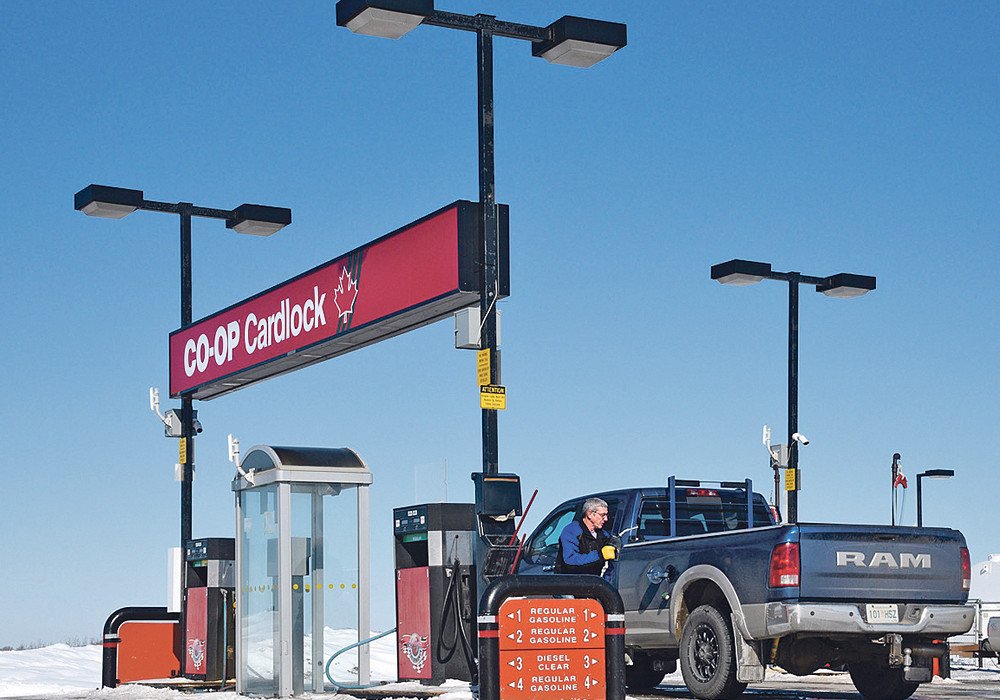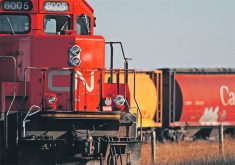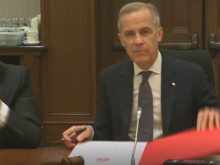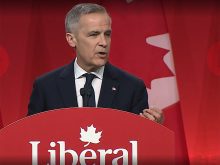The federal carbon tax comes into effect April 1 but farmers are concerned that farm fuel purchased at card locks may not be exempt by then.
Delegates to last month’s Canadian Federation of Agriculture annual meeting heard that the carbon tax would be applied to card lock purchases even though fuels for on-farm use are to be exempt.
The finance department referred reporters to a tweet from minister Bill Morneau: “Our Government’s policy is to exempt gasoline and diesel used on farms from the federal price on pollution. We are examining the card lock issue and looking to find a solution.”
Read Also

Farming Smarter receives financial boost from Alberta government for potato research
Farming Smarter near Lethbridge got a boost to its research equipment, thanks to the Alberta government’s increase in funding for research associations.
But Agricultural Producers Association of Saskatchewan president Todd Lewis said it shouldn’t be that difficult to figure out, considering farmers can already purchase marked diesel at cardlock locations.
He said he isn’t sure how farmers would be reimbursed for tax paid at card locks if the government doesn’t have a solution before the tax is imposed.
He also said he isn’t sure that many farmers are aware they need to fill out a form to receive the exemption on fuel delivered to their farms.
“April 1 is three weeks away or less now so there’s going to be a bit of an administrative hurdle,” he said last week.
Lorne Hunchak, a farmer from Borden, Sask., said he was surprised to receive a letter from his fuel provider telling him about the card lock issue.
“Last year we purchased almost all our fuel from the card lock,” he said. “It’s handy for me to do that, and we are concerned about fuel thefts at the farm so we try not to keep more than absolutely necessary.
“I don’t know what department of stupidity brought up this idea.”
Keystone Agricultural Producers president Bill Campbell said he found out about the problem at a Manitoba Climate and Green Plan meeting and raised it at CFA.
“It appears it will be dealt with,” he said, but whether it will happen before April 1 is unclear.
He also questioned the need for a form to receive the tax-exempt fuel on farms.
Federated Co-op is Western Canada’s largest farm fuel distributor.
Pam Skotnitsky, vice-president of strategy, said the company’s tax team identified the problem and has been engaged with the federal government as it works to fix it.
“At this point we’re really confident that we’ll have that in place by April 1,” she said March 11.
She said the issue is likely an “unintended consequence” of how the regulation was written, since it refers specifically to farm fuel that is delivered.
But Skotnitsky said most of Federated’s farm fuel is actually distributed through card locks.
“We’ve got 400 card locks and those have all been built so that there is that security of access at the farmgate, because they’ve got 24-hour operations and they need quick, reliable, secure fuel and they also don’t want to necessarily store it on farms,” she said.
In Alberta and British Columbia, where carbon taxes have been in place for some time, the exemption does include card locks.
Skotnitsky said she believes the federal government understands how critical it is to have a resolution by April 1.
Both Campbell and Lewis noted that the busy spring planting season will soon be underway with thousands of litres of fuel being used.
“It’s going to have to get aligned here in short order,” said Lewis. “Typically, guys take big deliveries coming up here because summer diesel hasn’t been available. Most guys go into the winter with their tanks empty for security reasons.”
Forcing farmers to pay the tax and then issuing rebates is not the way to go, he said.
He suggested the tax shouldn’t be implemented until the issue is sorted out.


















